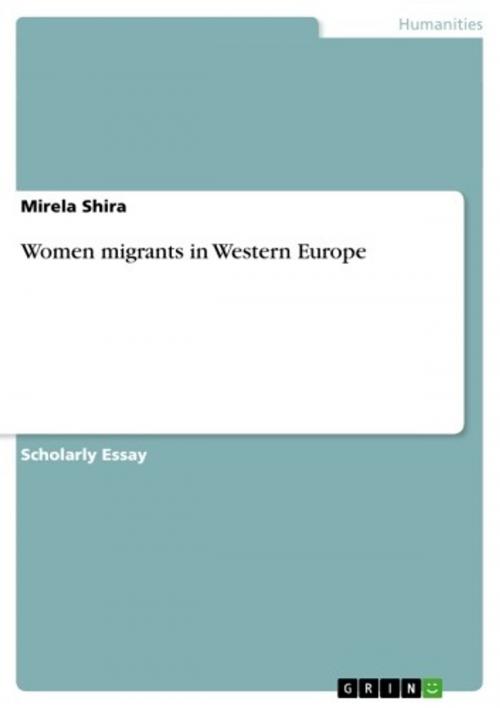| Author: | Mirela Shira | ISBN: | 9783656295198 |
| Publisher: | GRIN Verlag | Publication: | October 23, 2012 |
| Imprint: | GRIN Verlag | Language: | English |
| Author: | Mirela Shira |
| ISBN: | 9783656295198 |
| Publisher: | GRIN Verlag |
| Publication: | October 23, 2012 |
| Imprint: | GRIN Verlag |
| Language: | English |
Scientific Essay from the year 2008 in the subject Sociology - Political Sociology, Majorities, Minorities, grade: 2, University of Vienna (Institut für den Donauraum und Mitteleuropa), course: Modul Soziologie, language: English, abstract: Eighteen years ago, mobility in eastern and central Europe beyond national frontiers was rare. After the fall of the Berlin wall the migration from East to West was a significant trend in international patterns and mobility. The relation between Eastern and Western Europe has been determined by the intensification of a variety of political, economic, and cultural exchanges between East and West. It is this human mobility, the transnational migration, its physical, cultural, political, subjective and conceptual form of movement, which play a central role in these exchanges. We are living now in a world which is organised along multiple axes of mobility, circulation, flows of people and commodities. The number of the migrants and especially that of women migrants has marked an increase in the recent years. The movement of people across Europe is changing the landscape of the continent. The migrants are becoming active subjects to their own social life as well as to legal and political regulation amongst others. Although the majority of the migrants are born in East Europe they are part of the European identity and they are taking responsibility for this transnational space of mediation and exchange called Europe. Apart from countries and cultures there are also spaces of social interaction that determine the establishment of relationships. The transition from state socialism to capitalism has had a huge impact on the lives and the position of the women in Eastern European societies. This political change has been accompanied by the intensification of multi-level communication between the European East and the West.
Scientific Essay from the year 2008 in the subject Sociology - Political Sociology, Majorities, Minorities, grade: 2, University of Vienna (Institut für den Donauraum und Mitteleuropa), course: Modul Soziologie, language: English, abstract: Eighteen years ago, mobility in eastern and central Europe beyond national frontiers was rare. After the fall of the Berlin wall the migration from East to West was a significant trend in international patterns and mobility. The relation between Eastern and Western Europe has been determined by the intensification of a variety of political, economic, and cultural exchanges between East and West. It is this human mobility, the transnational migration, its physical, cultural, political, subjective and conceptual form of movement, which play a central role in these exchanges. We are living now in a world which is organised along multiple axes of mobility, circulation, flows of people and commodities. The number of the migrants and especially that of women migrants has marked an increase in the recent years. The movement of people across Europe is changing the landscape of the continent. The migrants are becoming active subjects to their own social life as well as to legal and political regulation amongst others. Although the majority of the migrants are born in East Europe they are part of the European identity and they are taking responsibility for this transnational space of mediation and exchange called Europe. Apart from countries and cultures there are also spaces of social interaction that determine the establishment of relationships. The transition from state socialism to capitalism has had a huge impact on the lives and the position of the women in Eastern European societies. This political change has been accompanied by the intensification of multi-level communication between the European East and the West.















